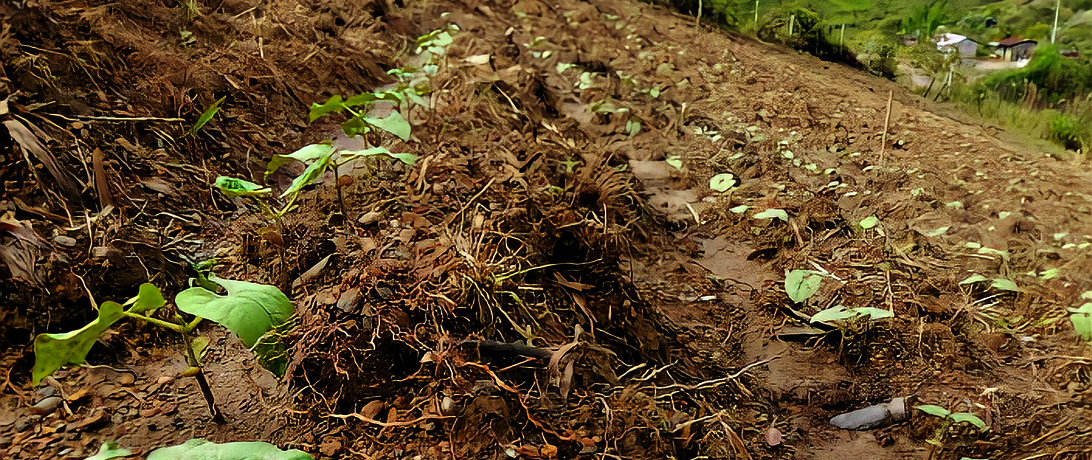
The COOMULSEPAZ Multiactive Women Seeding Peace Cooperative, founded by women participating in the Contingency Plan, is responsible for coordinating activities that will ensure that there will be no shortage of food in Anorí.
Since the end of 2019, the Contingency Plan to Support Ex-coca Grower Families has strengthened the productive capacities and collaborative networks of 1967 families registered in the National Comprehensive Substitution Program (PNIS). In Anorí, Antioquia these improvements have allowed local organizations to provide food security for their communities, at a time when the COVID-19 pandemic crisis presents unprecedented challenges for food supply chains across the country.
The COOMULSEPAZ Multiactive Women Seeding Peace Cooperative, founded by women participating in the Contingency Plan, is responsible for coordinating activities that will ensure that there will be no shortage of food in Anorí.
Orchards for a Sustainable Future
Mirian Arenas is part of the COOMULSEPAZ cooperative and is the chair of the Communal Action Board of her village.
"I don’t have much land of my own, but I offered a little part to make an orchard with the community." Mirian has lent a plot of her farm to settle one of the two community orchards that are being established in the rural area of Anorí, with the support of the Contingency Plan. "We have a very dedicated technician who is teaching us how to properly build the orchards and cultivate, in the spirit of improving our food security," says Mirian.
Watch this episode of the web series Women Seeding Peace to learn more about Miria
The closure of main roads, prompted by the COVID-19 health emergency, have proved how important it is to grow a variety of agricultural products for the future. "These two villages have been dedicated exclusively to monocultures such as coffee, cacao, and livestock,” explains Darío Montoya, PASO Colombia’s technical assistant. “The municipality does not have the food production needed to self-sustain. With the two community orchards, we aim to diversify the economy and nutrition of the municipality, as well as transfer technical knowledge to allow participants to grow food on their farms." The orchards will provide corn, beans, cassava, plantain, and vegetables to almost 100 families in both villages, including 55 registered in the PNIS program.
The benefits go beyond the production of just fresh fruits, providing seeds for the future as well. In Anorí’s community orchards, native seeds will be used and reused due to their adaptability to local soils and climatic conditions. Since the recycled seeds will continue to be planted in these lands, Anori’s rural farmers will enjoy considerable benefits. "Before we had to order expensive seeds from other cities because we don't have enough here,” Darío recalls. “If we reuse them here, seeds will be more affordable for the peasants and will be of better quality. If we make it, we can buy three kilos of seeds for the same price as one kilo in Medellín." This approach will facilitate both more sustainable production and access to quality food for both villages over the coming months.
The initiative has aroused great interest among the neighbors, and a somewhat forgotten sense of unity. Besides women working under the Cash for Work strategy, volunteers from the communal action boards have joined forces at both orchards, recognizing in this endeavor a key of their food security.
"Before there was nothing here,” says Mirian about food production in her village, “We had to take a sack and go to buy our food at the market. Now we think about eating a portion of the produce and reusing the best seeds to sow them again." At a time when the COVID-19 pandemic appears to restrict mobility and contact, strategies such as community orchards appear not only as an innovation for food production at a territorial level, but also as a response to a huge need in the Colombian countryside.
Article Details
Published
Topic
Program
Content Type
News
